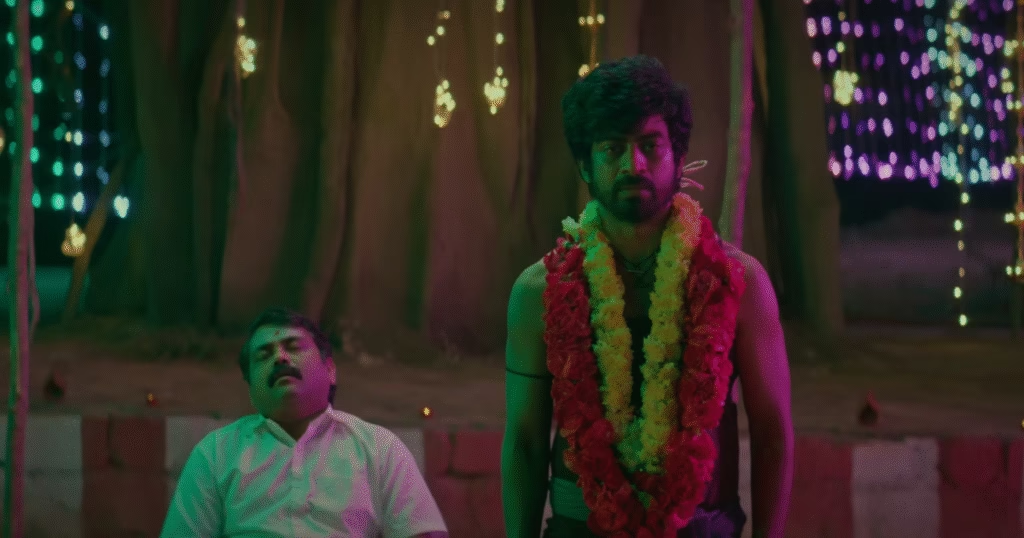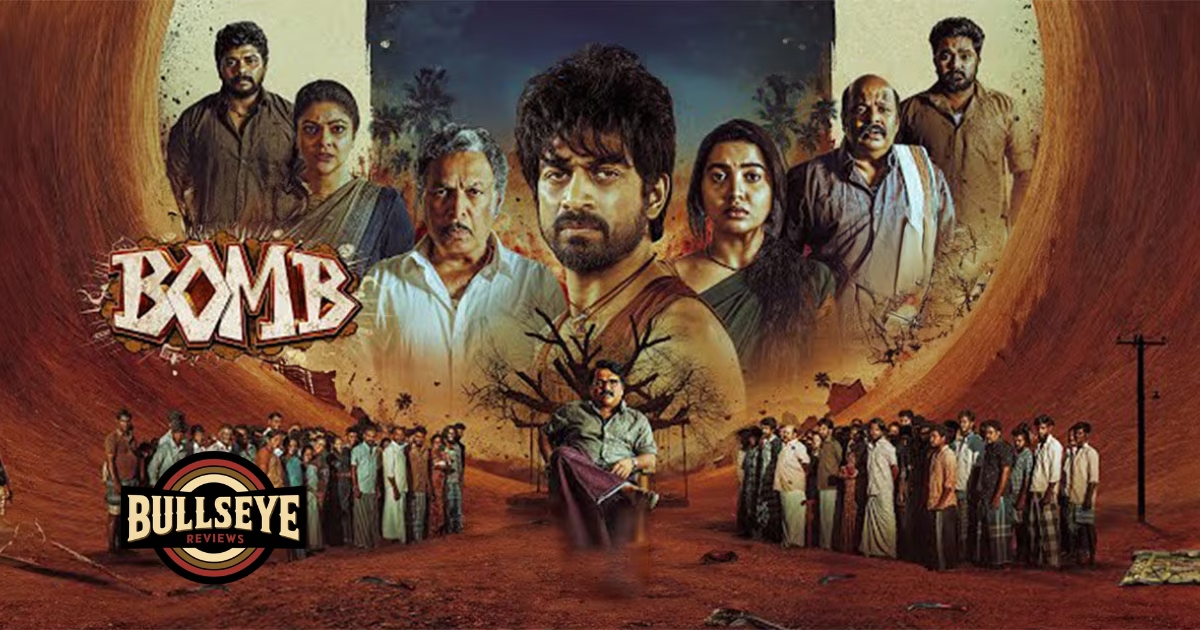Setting the Stage: Premise & Themes
The story unfolds in the fictional village of Kaalakammaipatti, which has been divided into two factions—Kallapatti and Kammaipatti—after a sacred rock split in half, shaking the faith of the people and deepening sectarian divides. The divisions linger through generations, manifesting in everyday life, rituals, and politics. Into this fractured setting comes Kathiravan (Kaali Venkat), an atheist and drunkard who openly mocks religious practices, and his loyal friend Manimuthu (Arjun Das), who finds himself caught between communities.
When Kathiravan dies suddenly, his corpse takes on an unusual significance. Villagers believe a prophecy has come true and start fighting over his body, convinced it signals the return of their deity. The bizarre premise is used to question how superstition thrives, how faith is manipulated, and how communities allow prejudice to overshadow humanity. Along the way, the film also touches on issues like the stigma faced by women who cannot conceive and the pressure children face when caught in sectarian conflict.
Strengths of the Film
One of Bomb’s greatest assets lies in its performances. Arjun Das sheds his intense screen persona to play Manimuthu with restraint and warmth, proving his range as an actor. Kaali Venkat, despite spending much of the film as a corpse, manages to leave a lasting impression, his character’s presence shaping the story even in death. Shivathmika Rajashekar adds depth as Kathiravan’s sister, balancing emotion and practicality in a role that grounds the narrative. Together, the cast provides sincerity that keeps the film engaging, even when the script falters.

The film also benefits from its ambition. Vishal Venkat does not hesitate to lampoon superstition and social hypocrisy, particularly in scenes involving children who are taught segregation or punished unfairly. These moments strike hard, highlighting how blind faith can crush innocence and foster hatred. At its best, the film finds humour in absurdity and tenderness in defiance, delivering satire without becoming preachy. The technical aspects also lend support, with D. Imman’s music enhancing the mood and the visuals capturing the earthy authenticity of a rural setting.
Where the Film Falters
For all its promise, Bomb struggles with pacing and focus. The first act takes too long to establish characters and their conflicts, and even then, some motivations remain underdeveloped. Crucial elements, such as the shared tragedy between Kathiravan and Manimuthu, are hinted at but never fully explored, leaving emotional gaps in the storytelling. Subplots like the elderly woman’s arc or a YouTuber chasing subscribers feel like distractions, stretching the runtime without adding weight to the central conflict.
Another challenge lies in the film’s shifting tone. What begins as a biting satire with magical realist elements gradually drifts into melodrama and sentimentality. While the intent is to inject emotion, the transitions often feel forced, dulling the sharpness of the social commentary. By trying to address too many themes—caste divisions, superstition, patriarchy, politics—the film ends up diluting its impact, offering glimpses of brilliance without pulling them together cohesively.
Technical & Artistic Notes
Visually, the film makes good use of its rural landscape, creating a setting that feels both real and allegorical. The cinematography complements the satirical tone, while D. Imman’s background score adds depth without overpowering the narrative. The editing, however, could have been tighter; several scenes overstay their welcome, and the mid-section, in particular, sags under the weight of repetition. Despite these flaws, the sincerity of the filmmaking shines through, making it clear that the director is more interested in sparking reflection than in offering easy entertainment.
Verdict
Bomb is a film with noble intentions and flashes of originality. Its unusual premise, strong performances, and willingness to satirize superstition make it a noteworthy attempt at socially engaged cinema. However, its inconsistent pacing, underdeveloped character arcs, and tonal imbalance prevent it from fully realising its potential. It is a film that dares to be different, and though uneven, it leaves audiences with food for thought about faith, humanity, and the absurdities of blind belief.
Bullseye Rating:★★★ (3/5 stars)
Inspector Zende is currently streaming on Netflix.

